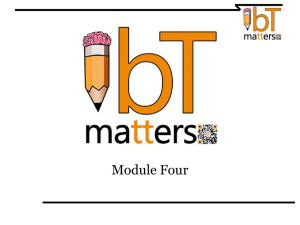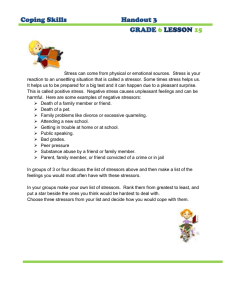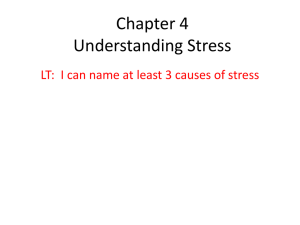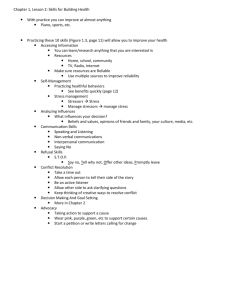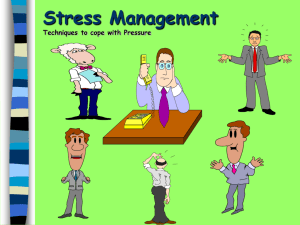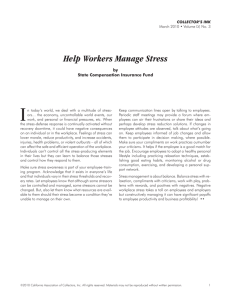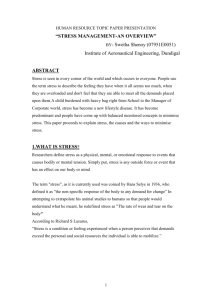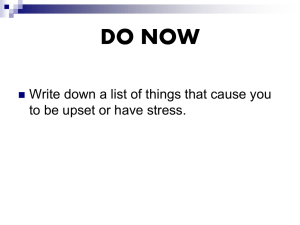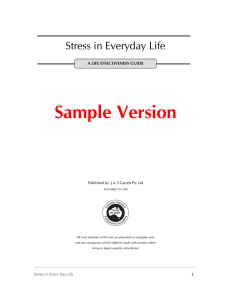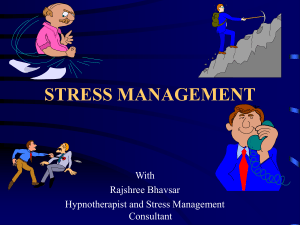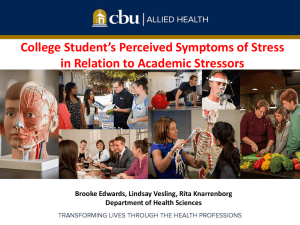File
advertisement
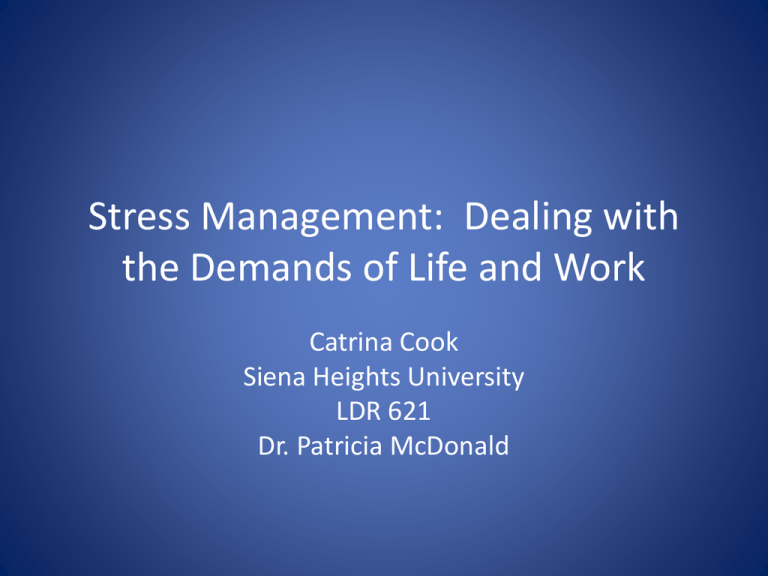
Stress Management: Dealing with the Demands of Life and Work Catrina Cook Siena Heights University LDR 621 Dr. Patricia McDonald What is Stress? • Definition of Stress: Psychological and Physical reaction to certain life events or situations. • Stress is the reaction people have to excessive pressures or other types of demand placed upon them. It arises when they worry that they can’t cope. Myths of Stress • All stress is bad • Stress will not hurt you • No symptoms, no stress • Only major symptoms of stress are harmful What are Stressors? • Stressors- Life events are called stressors and include things such as deadlines, traffic jams, job issues, children , marriage, Negative public image, and role conflicts. Events that cause stress. Stress Control S=P>R Stress occurs when the pressure is greater than the resource Stress Control A=Awareness What causes you stress? How do you react? Stress Control B= Balance • There is a fine line between positive/negative stress • How much can you cope with before it becomes negative? Stress Control C= Control What can you do to help yourself combat the negative effects of stress? Managing Stress • Exercise • Laughter • Sleep • Support Network • Most of the stress we experience is selfgenerated. How we perceive life whether an event makes us feel threatened or stimulated, encouraged or discouraged happy or sad depends to a large extent on how we perceive ourselves. References Aamodt, M. (2013). Organizational Psychology: An Applied Approach (7th ed.) Belmont, CA: Wadsworth Cengage Learning. Koeske, G. F., Koeske R. D. (1993). A preliminary test of a stress-strainoutcome model for re-conceptualizing the burnout phenomenon. Journal of Social Service Research 17:107-135. Moore, L., and Donohue, J. T., The Patrol Officer: Special Problems/Special Cures. Police Chief, 45(1978), 41-43.
